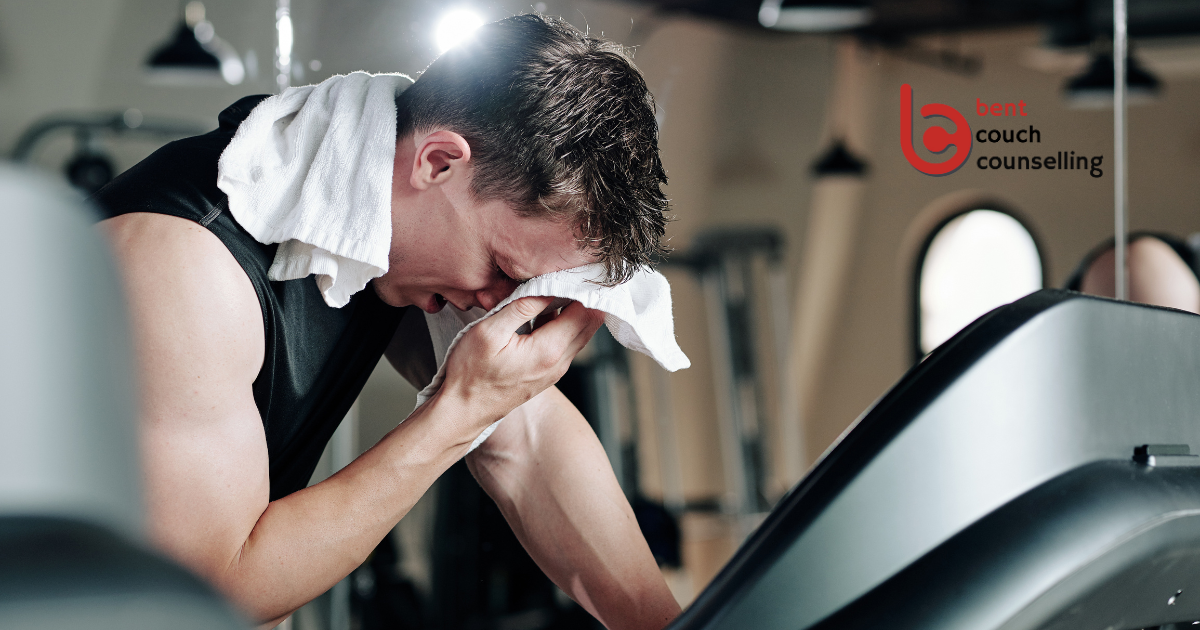How Exercise Became My Escape Before Coming Out
Day 18 of 30
As a dedicated mental health advocate and counsellor, I’ve come to value just how powerful open, honest conversations about mental health can be. This November, I’m embarking on a 30-day writing journey, sharing a new mental health article each day, not only to raise awareness but to raise funds for Movember.
There was a time in my life when I believed that the harder I pushed my body, the better I would feel. Exercise became my escape, my coping mechanism, and, at times, my obsession. While it initially helped me manage stress and build confidence, the line between healthy movement and overtraining blurred. This is the story of how I found balance in my physical activity and its profound impact on my mental well-being.
My Relationship with Overtraining
I overexercised for many years because I believed that more was always better. I’d train intensely every day, often ignoring the signals my body was sending. I viewed rest days as weakness, and my diet didn’t support the relentless demands I placed on myself. While outwardly, I might have appeared strong and fit, inside I felt drained, irritable, and emotionally unbalanced.
The irony is that what started as an effort to improve my mental health—through the release of endorphins and a sense of achievement—began to have the opposite effect. I was anxious, exhausted, and disconnected from my body’s needs. It took me years to realise that balance, not intensity, was the key to sustaining both physical and mental wellness.I was beginning my journey to an unhealthy connection with the gym—the very place I was hoping to help me.
Hiding Behind the Gym
Looking back, I can see how the gym became a way to avoid facing my deeper emotional struggles, especially before I came out. Working out was a way to channel frustration, numb my feelings, and avoid confronting the truth about who I was. The gym provided a place where I could push myself to the brink, creating a distraction from the inner turmoil I didn’t yet have the courage to address. It felt like progress, but in reality, it was just another form of escape. Coming out was the hardest but most liberating step I’ve ever taken, and it marked the beginning of a journey towards a healthier relationship with both myself and my fitness routine.
Discovering Balance: A Turning Point
The turning point came when I couldn’t ignore the physical and emotional toll any longer. My sleep was disrupted, my mood swings were affecting relationships, and my energy levels were nonexistent. I decided to reach out to a professional, who helped me reassess my approach to physical activity and mental health.
I learnt the value of:
Rest days: Allowing my body to recover wasn’t just a physical necessity; it was essential for emotional stability.
Listening to my body: Pushing through pain wasn’t strength—it was avoidance of self-care.
Nourishment: A balanced diet wasn’t just about fuelling my workouts but about supporting my overall health.
Variety in training: Incorporating different forms of exercise like yoga, walking, and swimming helped keep things fresh and enjoyable without overloading specific muscle groups.
Where am I today?
Now, my approach to physical activity is one of balance and self-compassion. I still love to train and challenge myself, but I ensure my routine includes adequate rest and recovery. I eat mindfully, no longer skipping meals to squeeze in another workout, and I focus on how exercise makes me feel rather than chasing specific outcomes or hiding who I am behind a chiselled body.
The result? My mental well-being has improved dramatically. I feel calmer, more focused, and in tune with my emotions. Exercise is still a cornerstone of my mental health, but now it’s part of a broader lifestyle of care and respect for my body and mind.
Lessons for You
If you’re struggling with finding balance in your physical activity, here are some tips that helped me:
Prioritise Rest: Rest days are when your body repairs itself and your mind finds peace. Without them, burnout is inevitable.
Check Your ‘Why’: Exercise should feel good and support your overall well-being. It might be time to reevaluate if guilt or outside pressures are driving it.
Seek Guidance: Whether it’s a trainer, counsellor, or friend, having someone to help you reassess your habits can be life-changing.
Celebrate Balance: It’s okay to take a day off or do a lighter activity. Mental health thrives in an environment of moderation and self-acceptance.
Together, let’s find YOUR balance.
These articles tackle vital topics related to mental well-being, many of them drawn directly from my own experiences and insights gained through my work in Bent Couch Counselling.
Movember’s mission is to support men’s mental health, address prostate and testicular cancer, and prevent suicide, which is a cause close to my heart. My personal connection to Gay Fathers Worldwide has encouraged me to raise $10,000 as part of Movember. I encourage you to donate here to an incredible cause.
By sharing personal perspectives and strategies over these 30 days, I hope to foster deeper understanding and connection around mental health issues. This project is about more than just reading or writing; it's about taking action.
I hope sharing my experience can be a guide, perhaps even a comfort, for others on a similar path.


